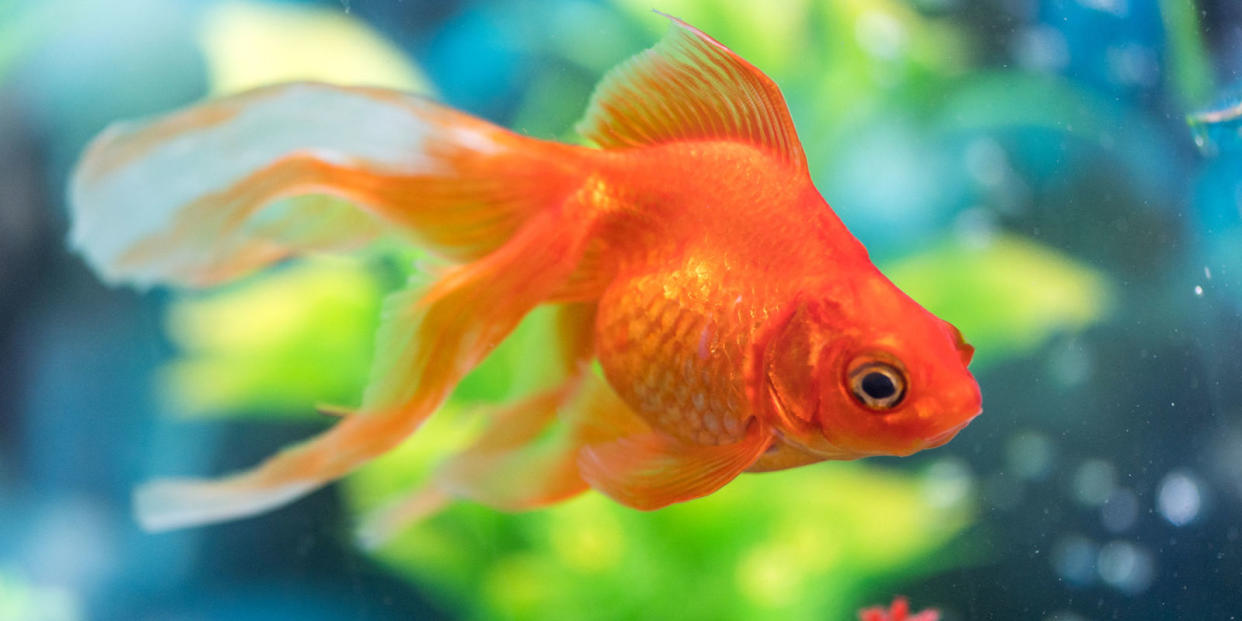Yes, Your Pet Fish Can Get Depressed

If you've ever noticed your pet goldfish lurking at the bottom of his tank and looking a bit glum, you might actually have something to worry about. According to researchers, fish can get depressed, too, and studies are being done on the aquatic animals in an effort to find treatments for humans suffering from the disorder.
You might be wondering what people could possibly have in common with fish, but experts say there's more than you think. "The neurochemistry is so similar that it's scary," Julian Pittman, a professor at the Department of Biological and Environmental Sciences at Troy University in Alabama, told The New York Times. Currently, Dr. Pittman is using itty-bitty zebrafish to help develop new medications to treat depression. (According to the National Institute for Mental Health, more than 16 million adults suffered a major depressive episode in 2015.)
Using the "novel tank test," Dr. Pittman determines the level of depression a fish is experiencing by how long they hang at the bottom of a new tank. But, if the fish swims up top and explores its new environment, then it's apparently happy as a clam.
Think this news sounds fishy, given that these underwater creatures can't tell us how they feel? Well, Dr. Pittman says that while watching his zebrafish, he observed that some seemingly lost interest in everything, similar to clinically depressed individuals. "You can tell depressed people are withdrawn. The same is true of fish," Culum Brown, a behavioral biologist at Macquarie University in Sydney told The New York Times.
It's a lack of stimulation that triggers depression in small aquatic pets, says Victoria Braithwaite, a professor of fisheries and biology at Penn State University who studies fish intelligence. "One of the things we're finding [is] that fish are naturally curious and seek novel things out," she told the Times.
Additionally, small tanks with poor water quality and low oxygen make matters worse. "A goldfish bowl for example is the worst possible situation," Dr. Brown told The New York Times.
To prevent your fish from feeling blue, it's important to add plants to nibble on and cages to swim through into their tanks. Not only will this make their environment more aesthetically pleasing, it will provide them with plenty of entertainment, thus decreasing stress and even promoting brain growth.
(h/t The New York Times)
You Might Also Like

